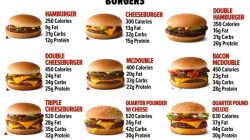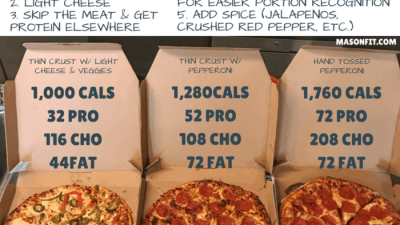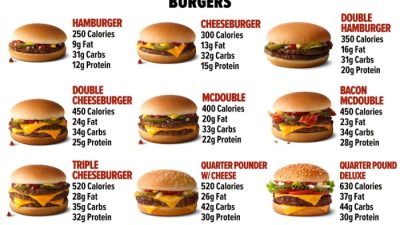Caffeine Content in Coca-Cola: Coca Cola Nutrition Facts Caffeine
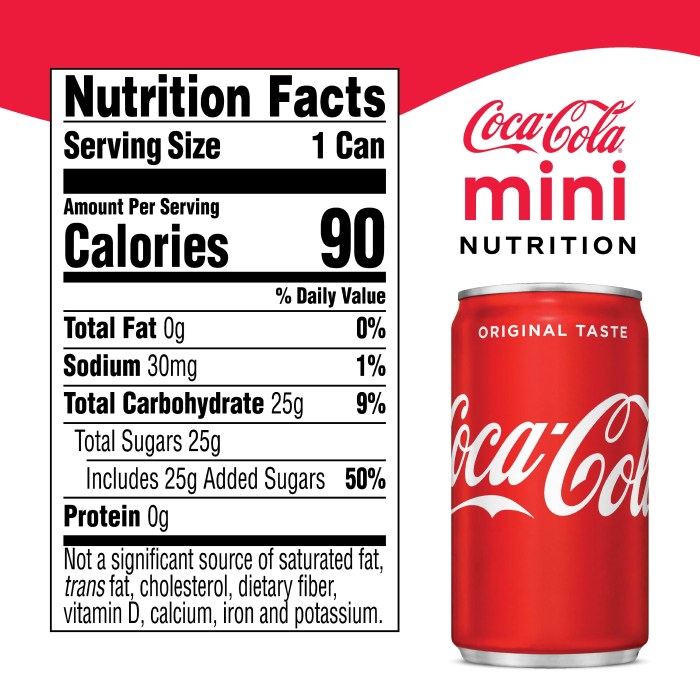
Coca cola nutrition facts caffeine – Coca-Cola and its various iterations are globally recognized beverages, and a significant component of their appeal, for many, is the caffeine content. Understanding the amount of caffeine in these drinks, and its effects on the body, is crucial for informed consumption. This section details the caffeine levels in different Coca-Cola products and compares them to other common caffeinated drinks.
Coca-Cola’s high caffeine content is a well-known fact, often overshadowing other nutritional aspects. However, comparing it to the protein and calcium found in foods like cottage cheese offers a stark contrast. For a detailed look at the nutritional profile of cottage cheese, check out this helpful resource: cottage cheese nutrition facts. Returning to Coca-Cola, understanding its caffeine content is crucial for those monitoring their intake.
The caffeine content in Coca-Cola products can vary depending on the specific beverage and serving size. While the exact amount can fluctuate slightly due to production variations, the following provides a general overview of caffeine levels in a standard serving (typically 12 ounces or 355 ml).
Caffeine Levels in Coca-Cola Products
The following bullet points list the approximate caffeine content of several popular Coca-Cola products. It’s important to remember that these are averages and may differ slightly based on factors such as the manufacturing process and bottling location.
- Coca-Cola Classic: Approximately 34 mg of caffeine per 12-ounce serving.
- Diet Coke: Approximately 46 mg of caffeine per 12-ounce serving.
- Coca-Cola Zero Sugar: Approximately 34 mg of caffeine per 12-ounce serving.
- Caffeine-Free Coca-Cola: Contains negligible amounts of caffeine.
Effects of Caffeine on the Human Body
Caffeine, a central nervous system stimulant, produces various effects on the body, both short-term and long-term. These effects are influenced by factors including the amount of caffeine consumed, individual sensitivity, and other health factors.
Short-term effects often include increased alertness, improved mood, reduced fatigue, and enhanced cognitive performance. However, excessive consumption can lead to anxiety, restlessness, insomnia, and an increased heart rate. These effects typically manifest within minutes to hours of ingestion and subside as the caffeine is metabolized.
Long-term effects are less well-defined and often depend on chronic consumption patterns. While moderate caffeine intake is generally considered safe for most adults, habitual high consumption might be linked to increased risk of certain health issues, such as cardiovascular problems in some individuals. Conversely, some studies suggest moderate caffeine intake might offer certain health benefits, such as reduced risk of type 2 diabetes and Parkinson’s disease.
However, more research is needed to establish definitive cause-and-effect relationships.
Caffeine Content Comparison: Coca-Cola vs. Other Beverages
Comparing the caffeine content of Coca-Cola to other popular caffeinated beverages provides context for understanding its relative stimulating effect. The following table offers a comparison based on typical serving sizes.
| Beverage | Serving Size (approx.) | Caffeine Content (approx.) | Notes |
|---|---|---|---|
| Coca-Cola | 12 oz (355 ml) | 34 mg | Values can vary slightly |
| Diet Coke | 12 oz (355 ml) | 46 mg | Higher than regular Coca-Cola |
| Brewed Coffee (8 oz) | 8 oz (237 ml) | 95-200 mg | Wide range depending on brew method and bean type |
| Black Tea (8 oz) | 8 oz (237 ml) | 30-50 mg | Lower than coffee, varies by tea type and brewing |
Impact of Sugar in Coca-Cola
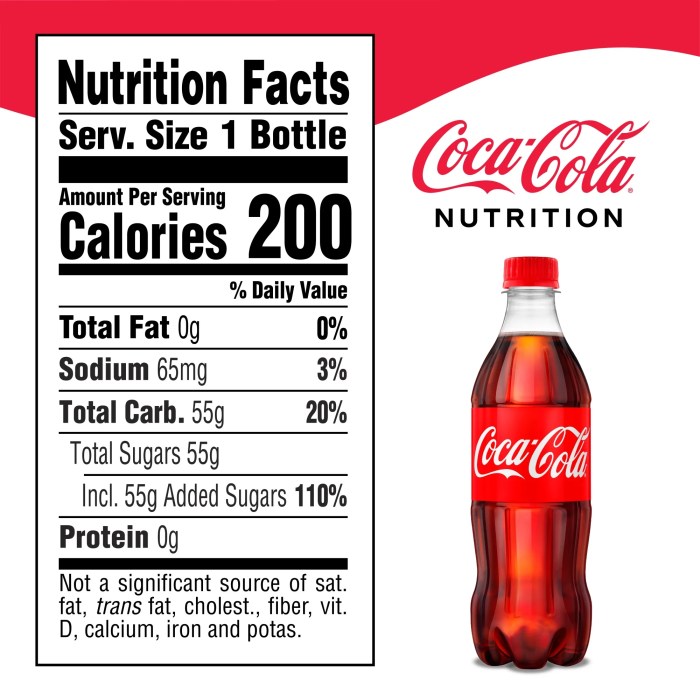
Coca-Cola’s sweetness is derived primarily from sugar, specifically high-fructose corn syrup (HFCS) in many regions, although some formulations use sucrose (table sugar). Understanding the type of sugar and its effects on the body is crucial to evaluating the overall health implications of consuming Coca-Cola.The high sugar content in Coca-Cola significantly impacts blood sugar levels. HFCS, a mixture of fructose and glucose, is rapidly absorbed into the bloodstream, leading to a sharp spike in blood glucose.
This rapid increase, followed by a subsequent crash, can contribute to energy fluctuations, cravings, and potentially long-term health problems. Sucrose, while also a simple sugar, has a slightly different metabolic pathway but still contributes significantly to blood sugar spikes.
Health Implications of High Sugar Consumption
Consuming large amounts of sugary drinks like Coca-Cola is strongly linked to various health issues. The excessive sugar intake contributes to weight gain and obesity, primarily because the calories from sugar are often considered “empty calories,” lacking essential nutrients. This excess weight increases the risk of developing type 2 diabetes, a chronic condition where the body struggles to regulate blood sugar effectively.
Furthermore, high sugar consumption is associated with an increased risk of cardiovascular disease, including heart disease and stroke, through mechanisms such as inflammation and the development of unhealthy cholesterol levels. The high sugar content can also contribute to non-alcoholic fatty liver disease and certain types of cancer.
Visual Representation of Sugar Content, Coca cola nutrition facts caffeine
Imagine a bar graph. The horizontal axis represents different Coca-Cola serving sizes: a standard 12-ounce can, a 20-ounce bottle, and a 2-liter bottle. The vertical axis represents the grams of sugar. The bar for the 12-ounce can would be shorter than the 20-ounce bottle, which in turn would be significantly shorter than the bar representing the massive sugar content of the 2-liter bottle.
The difference in height between the bars would dramatically illustrate the exponential increase in sugar intake with larger serving sizes. The bars could be color-coded, using a visually striking color to represent the sheer amount of sugar, further emphasizing the point. For example, the bars could progressively darken from light red (12 oz) to deep crimson (2 liters).
This visual representation would clearly communicate the substantial variation in sugar content across different Coca-Cola serving sizes.
FAQ Overview
Does Coca-Cola contain any artificial sweeteners?
Some Coca-Cola variations, like Diet Coke and Coke Zero, utilize artificial sweeteners instead of sugar. However, the original Coca-Cola recipe does not.
How does the caffeine in Coca-Cola compare to coffee?
The caffeine content varies depending on the serving size and the specific Coca-Cola product. Generally, a standard serving of Coca-Cola contains less caffeine than a similar serving of coffee.
Are there any long-term health risks associated with consuming Coca-Cola regularly?
Regular consumption of Coca-Cola, due to its high sugar and caffeine content, is linked to increased risks of obesity, type 2 diabetes, and cardiovascular issues. Moderation is key.
What are some good alternatives to Coca-Cola?
Healthier alternatives include water, unsweetened tea, sparkling water with natural flavorings, and fruit-infused water. These options provide hydration without the high sugar and caffeine content of Coca-Cola.
Is the Coca-Cola recipe a secret?
While the exact formula is kept confidential, the main ingredients are publicly known. The precise ratios and the identity of “Merchandise 7X” (a flavoring extract) remain a closely guarded trade secret.



